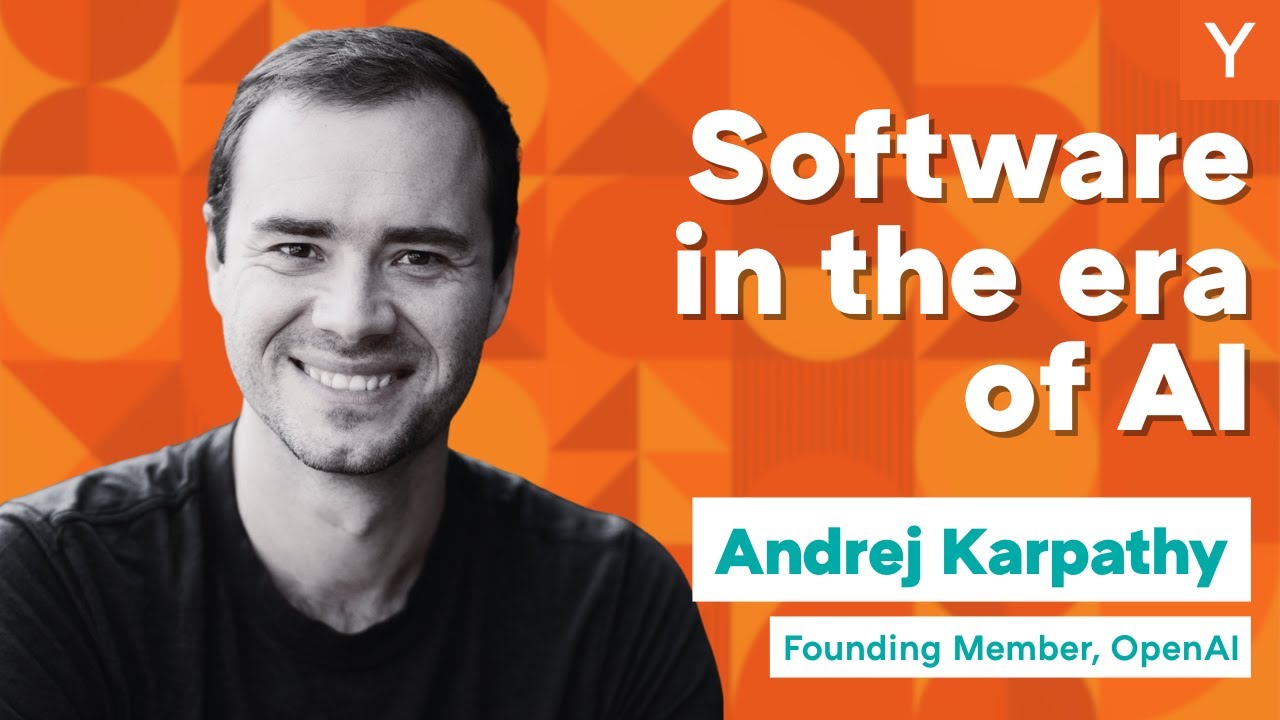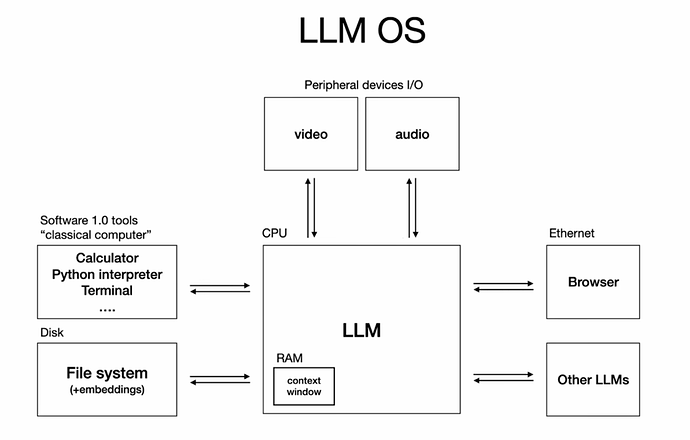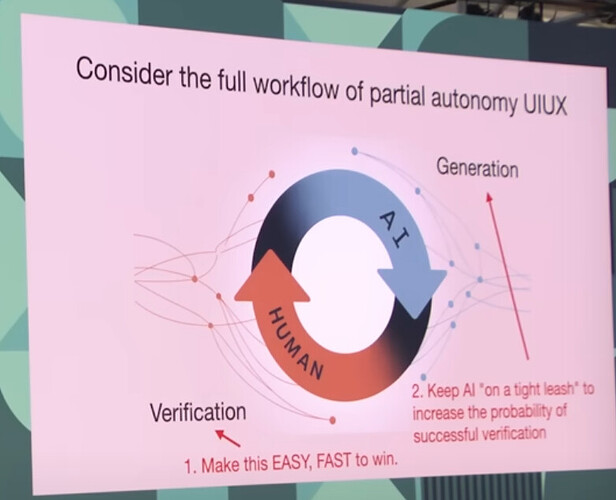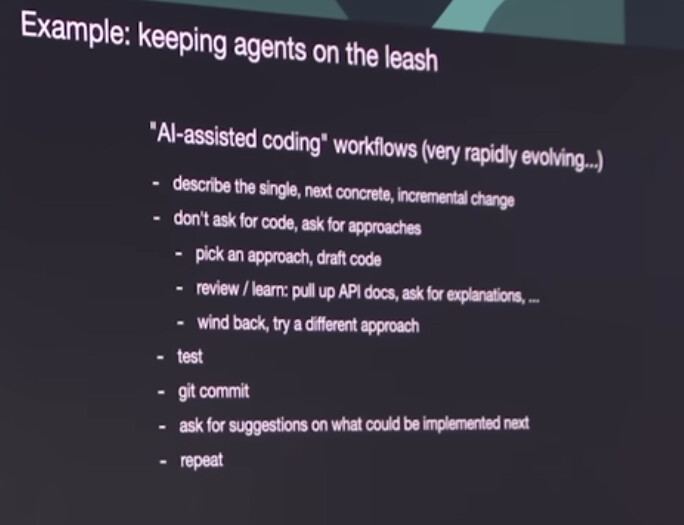tl; dr:
- AI is similar to large-scale utilities, like electricity. Huge infrastructure costs, metered access, etc.
- text formats, like Markdown, are important. If you do your documentation in Markdown, the LLMs can effectively use it.
- AI needs to be kept on a short leash – small incremental steps, test.
- Work will shift to AI generating, and humans verifying
Notes:
- Three types of software:
- Software 1.0: code we write
- Software 2.0: neural networks
- Software 3.0: LLMs
- Good idea to be proficient in all of these paradigms
- Part 1: How to think about LLMs?
- AI is the new electricity – Andrew Ng
- CAPEX to train the LLM (build the grid)
- OPEX to serve intelligence of APIs
- Metered access
- Intelligence “brownouts” when OpenAI goes down
- LLMs have properties of fabs – Huge CAPEX, deep secrets
- LLMs have properties of Operating Systems
- increasingly complex software ecosystems
- LLMs are software, trivial to copy & paste
- LLM apps like Cursor can run on GPT, Claude, Gemeni, DeepSeek, etc.
- 1950s - 1970s time-sharing era
- we are in the mainframe, time-sharing mode
- feels like we’re using the terminal
- Part 2: LLM Psychology
- stochastic simulations of humans
- encyclopedic knowledge
- can hallucinate
- jagged intelligence – good at some things, but make really silly mistakes
- no continual learning
- gullible – prompt injection risks, leak private data
- Part 3: Opportunities
- Apps like Cursor and Perplexity
- package state into a context window before calling LLM
- orchestrate and call multiple models
- application specific GUI
- audit work of these falliable systems
- Autonomy slider
- keep prompts small and concrete and make small steps
- how to keep AI on the leash
- Vibe coding will be a gateway drug to programming
- Vibe coded https://www.menugen.app
- code was easy (few hours)
- devops was hard part (week)
- Apps like Cursor and Perplexity
- Part 4: build for agents
- robots.txt → llms.txt
- offer documentation in ways LLMs can understand (Markdown)
- docs that contain click don’t work
- github.com → gitingest.com (concatenates all the files)
- github.com → deepwiki.com
- very expensive for LLMs to use a GUI, so meet the LLM halfway and use text
Some slides that stood out:



